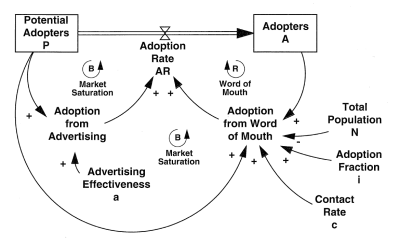|
Systems Dynamics and Complexity
The course encompasses a large range of approaches towards systems and their dynamics, with particular emphasis on problem solving. It starts from basic insights on why real problems are not simple but complex, and why systems do not always do what we expect. Based on that, we introduce tools and methods commonly used in Systems Engineering (systems oriented management) and Project Management to analyse problems at large, to search for solutions and to optimize project scheduling. The part of Systems Dynamics focuses on models of systems with various positive and negative feedback loops, which exhibit, for example, unwanted oscillations. Using examples of Economic Dynamics, such as the adoption of new products or the competition between technologies, we also develop an understanding of the specific nonlinear dynamics in markets. Eventually, we investigate the effects of Nonlinear Dynamics on the instability of systems and their long-term predictiveness, with applications in supply chains and manufacturing systems. In addition to the theoretical framework developed, emphasis of the course is put on quantitative tools for systems modeling and on real world examples from industries and markets. Weekly self-study tasks provide opportunities to deepen the theoretical understanding of the topics, to develop own solutions in small groups, and to learn about the software VENSIM used for systems dynamics modeling.
Participants of the course should have an engineering background and be interested in learning about systems dynamics at large, both from a practical and a modeling perspective. 
Resources for this courseLecture Materials |
||